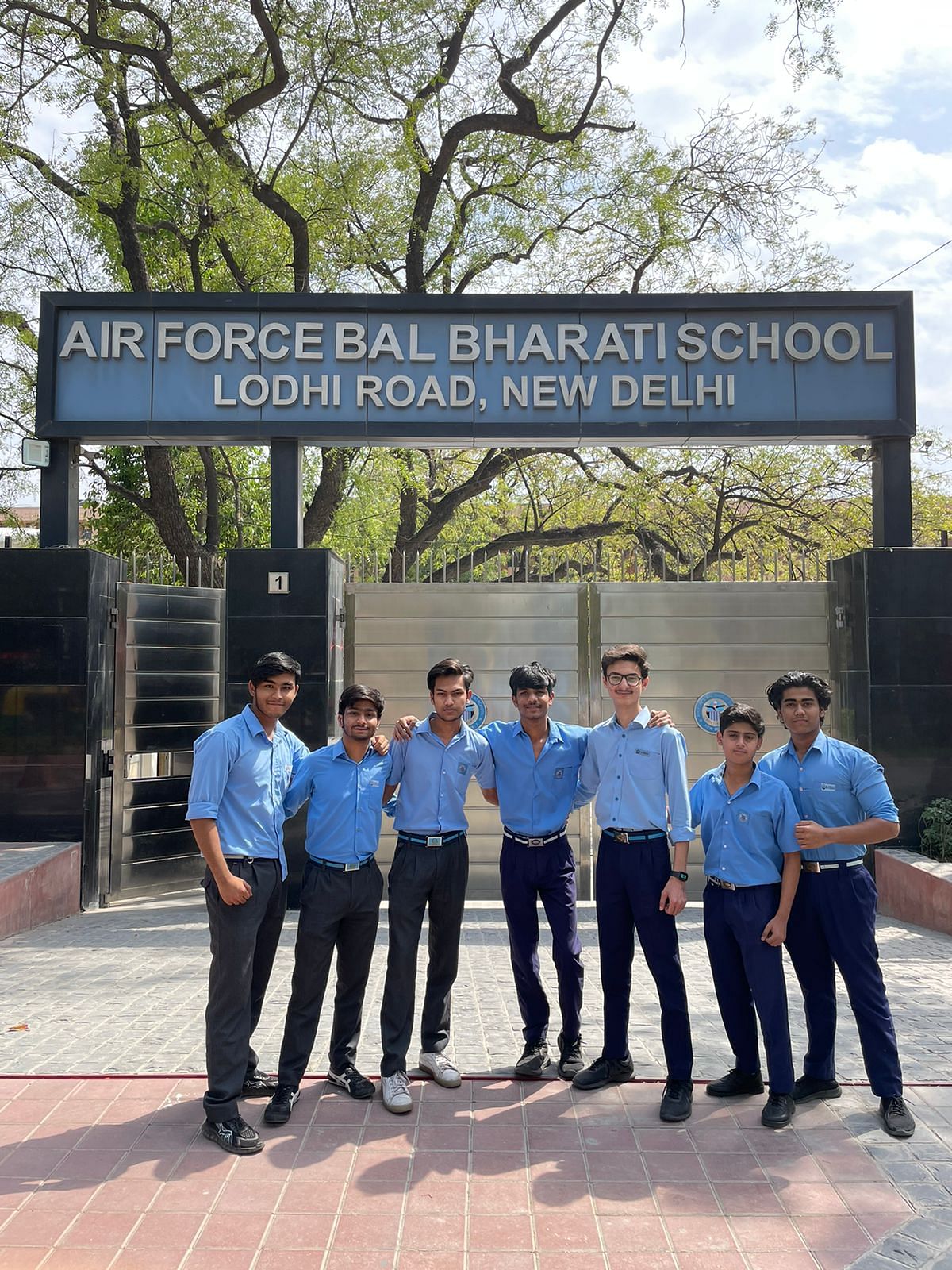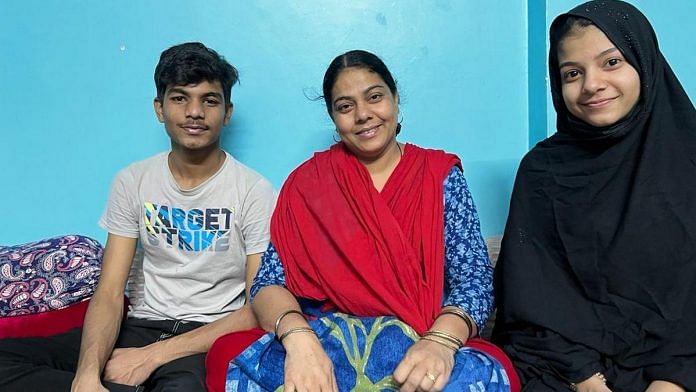Delhi was among the first states to implement the Right to Education (RTE) Act in 2011, obligating private schools to allocate 25 per cent of their seats to students from economically weaker sections (EWS), free of cost from classes 1 to 8. However, the experiences of EWS students in Delhi’s elite private schools have been mixed. This is Part 2 of a three-part series that looks at these students’ differing realities. Read Part 1 here.
New Delhi: As an anganwadi helper in Hazrat Nizamuddin West, Tasveer Bano takes care of young children, most of whom eventually make their way to nearby government schools. But when it came to her own, she longed for something more.
In 2011, Bano learnt about the provision for admitting underprivileged students in private schools under the economically weaker section (EWS) quota and wanted her children to benefit from it.
With a monthly income fluctuating between Rs 10,000-15,000 at the time, Bano knew her children qualified.
“I went through the long and arduous process of getting them admission into a private school through EWS so that they could receive an education on par with children in the general category of these very schools,” recalls 45-year-old Bano.
However, while her son Mohammad Hanzala, now 18, thrived in a supportive atmosphere at Air Force Bal Bharati, her daughter Khulela Bano, 16, felt she could never fit in at Modern School (Barakhamba Road). Tasveer Bano claims Khulela encountered only cold indifference from teachers when she struggled.
While Hanzala is awaiting the results of his class 12 exams, his sister is set to repeat class 11.
“EWS is after all EWS,” says Bano, whose husband is a gardener in the exclusive Delhi Golf Club. “We all know what the tag means. Our children know what it means and so does the school.”
Despite his positive experience overall, Hanzala has faced major challenges too. In 2018, when he was about to move up to class 9, his school declared he was no longer eligible to study for free and that he should get admission elsewhere if the family couldn’t pay the fees.
This predicament was not unusual since many private schools demand that EWS students should pay fees after class 8 when the RTE window ends.
However, Tasveer Bano challenged this and emerged victorious after a tough legal battle.
Ashok Aggarwal, a social activist and lawyer who represented Tasveer Bano during the process, says what worked in their favour was the fact that the school was built on government land.
“We are able to get schools built on government land to cave in but those running on privately owned lands still retain the power to demand fees after class 8,” he explains.
Aggarwal says that even after a decade of the EWS provision being implemented, there is still some resistance from schools. “Since more and more stakeholders are getting invested and made aware of the benefits of EWS, the discrimination has only been minimised, but it hasn’t disappeared.”
Several private school teachers who spoke to ThePrint also claim that EWS students are pushed to excel in order to showcase the school’s success.
A teacher in a private South Delhi school explains: “The school feels that they have invested so much in the child’s education, they want to see tangible outcomes that give them a return on their investment.”
Here’s a look at the contrasting experience of two siblings, Mohammad Hanzala and his younger sister Khulela Bano, as they navigated being “EWS students” in elite schools.
Also read: ‘School gates shut in their faces’ — Delhi HC rues ‘humiliation’ of EWS students denied admission
Hanzala’s journey: ‘I want to open a hair salon’
Mohammad Hanzala was one of the first children from Hazrat Nizamuddin West Basti to gain admission to an expensive private school through the Economically Weaker Section quota.
While his mother wants him to succeed, she also hopes he will start “working soon” to help support the family.
Hanzala, who is awaiting his class 12 results, has not signed up for any college entrance exams. Instead, he plans to pursue a training course in hairdressing and start earning for his family.
“Everybody looks down upon hair stylists, thinking of them as nais (barbers), but I want to show people the difference well-groomed hair can make to an individual’s personality,” he says, adding he is scouting for good training institutes in Delhi.
Higher education is out for now.
Reflecting on his experience in class 10, when he had to be enrolled for tuition classes, Hanzala notes: “Affording tutors for CBSE schools itself is a big challenge. While my classmates had easy access to private tutors, we had to scrape through just for my tuition classes for one year.”
Lawyer Ashok Aggarwal notes that while studying in private schools is a dream come true for families like Hanzala’s, the EWS quota places children in a new social class straddling two different worlds.
“These children (going to private schools under the EWS quota) often lose association with their neighborhood contemporaries because of the difference in their exposure and education standards. But they don’t fit into the elite circles either since they do not have similar means as those students,” he says.
Hanzala faced a similar situation when he was in class 10. He used to spend time hanging out with his neighbourhood friends until a conversation with an elder cousin prompted him to focus on his career.
“He asked me how long I’d keep whiling away my time, sitting by the canal. He told me that I should use my knowledge of English and become a successful professional. That was a moment of realisation for me,” Hanzala says.
Since then, Hanzala has stopped going out with his neighbourhood friends because he believes they lack ambition.
“Since we grew up together, I will always be friends with them, but now I am focusing on my career, an ambitious thought process which I find lacking in them.”
He now spends his free time only with his friends from school.

Although Hanzala says he never experienced any differential treatment from his teachers, most of his friends at school are also from the EWS category.
“We never bothered with what the other students said or thought. In fact, one of my friends is from the general category, and he is the one who taught me how to drive a car.”
Despite the challenges he faced, Hanzala says enjoyed going to school so much that he would do it all over again if given the chance.
Khulela’s story: ‘Pressure is more intense for EWS students’
While Hanzala’s largely positive experience at a private school was shaped by supportive teaching staff, his sister’s Khulela’s experience was different.
A more introverted child, Khulela was never able to develop the confidence that her brother did.
According to Tasveer Bano, Khulela’s teachers would often ignore or scold her when she cried during class, instilling in her a hyperconsciousness of her EWS status.
“To date, she doesn’t have many friends in school and is afraid of approaching her teachers fearing a rebuke or a taunt,” says Tasveer Bano.
Khulela has struggled academically too. She performed poorly in her class 11 practical exams, which led to her being held back a year.
“Usually, students are held back because of extremely poor performance but the pressure to perform is much more intense on EWS students,” Khulela says. “Schools like to show that their EWS students are acing the exams.”
(Edited by Asavari Singh)
Also read: Why Indian parents are shifting kids to govt schools, but spending more on private tutors



